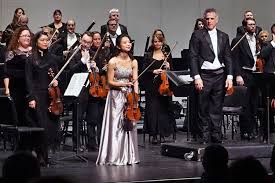Dresden wars: Thielemann hits back at ‘barking dog’ Dorny
mainThe music director of the Semper Oper was accused by the sacked general director, Serge Dorny, of making unreasonable demands.
Here‘s Christian Thielemann’s reply:
(And here’s an update from his press conference).

‘Herr Dorny hat einen Vertrag unterschrieben, der von seinem Anwalt ausgehandelt wurde, und damit müsst’s eigentlich gut sein. (…) Wie es dazu kam, dass er plötzlich meint, seine Befugnisse und Kompetenzen genügen ihm nicht mehr, ist mir ein Rätsel.’
‘Mr. Dorny signed a contract that was negotiated by his lawyer, and that’s the end of it. … How did it come about that suddenly his powers and authority were no longer enough for him. That is beyond me.’
And, more colourfully:
‘Getroffene Hunde bellen eben. Aber davon lassen wir uns nicht provozieren.’
A beaten dog barks. But let’s not get provoked by that.







Comments